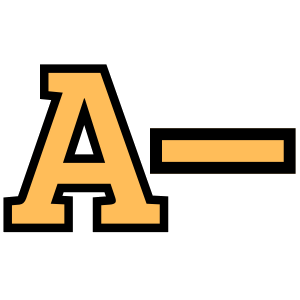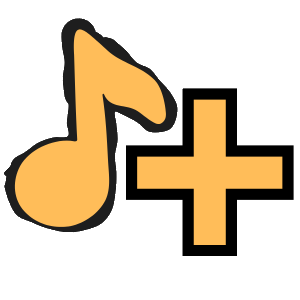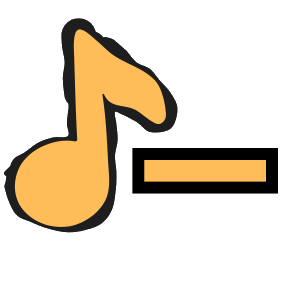Texto
Desplazamiento
Transportador
Color de Fondo
Herramientas
Tamaño
Tamaño
Altura
Altura
#----------------------------------PLEASE NOTE---------------------------------#
#This file is the author's own work and represents their interpretation of the #
#song. You may only use this file for private study, scholarship, or research. #
#------------------------------------------------------------------------------##
From: [email protected] (spideir)
"AUTUMN LEAVES" (Joseph Kosma, 1947--"jazz standard")
===============
[tab] -- chord chart "arrangement" by tcg, 198?, 1994
-- 4/4 // key of Em/G // Allegro (pretty fast)
[the way _I_ played it, at least!--
just to piss off Roger Williams...]
-- form: 32-bar--||: A(8)-A(8)-B(8)-C(8) :||
-- the lyrics? believe me, you DON'T want to know! . . .
-- each chord symbol = / / / /
[straight fours: "chunk"-"chunk"-"chunk"-"chunk"]
-- chords voiced for fingerstyle; may have to alter voicings
for plectrum (especially Em...)[/tab]
[tab] A: Am7 Am6 GM7 GM6
5-55(5)- 5-45(5)- 3-44(3)- 3-24(3)-[/tab]
[tab] Am7 Co7* Em Em [hold for 4]
5-55(5)- -3(4)24- 0-545- 0-545- [repeat A][/tab]
[tab] B: B7 B7 Em Em
-2424- -2424- 0-545- 0-545-[/tab]
[tab] D7 D7 GM7 GM7
-5453- -5453- 3-443- 3-443-[/tab]
[tab] C: Am7 B7 Em Em
5-555- -2424- 0-545- 0-545-[/tab]
[tab] Am7 B7 Em Em [hold for 4]
5-555- -2424- 0-545- 0-545-[/tab]
* Co7 is a substitute for the B7 chord in the "sheet music"; feel free
to interchange Co7 & B7 in tune [Co7 = B7b9(no root)].
In fact, the chords above can be viewed as a simple example of
jazz substitutions--
A section, "sheet music": Am D7 G G Am B7 Em Em
" " "jazz chords": Am7 Am6 GM7 GM6 Am7 Co7 Em Em
--the WHY's:
1) Am-->Am7: in most cases, you can play a m7 for a minor to get a
"jazzier" sound (Santana & Steely Dan did it all the time--likewise,
in this tune, you could change all the Em's to Em7's...). Another
common jazz substitution "line" for the plain minor chord could also
be incorporated into this song: instead of Em Em, try Em(//)
[tab] Em(M7) (//) Em7(//) Em6 (//).
2) D7-->Am6: for a V7 chord in a major tonality (here, D7, in G major),[/tab]
you can substitute the V9 (D7->D9); in addition, D9(no root)=Am6
[V9(no root)=ii6]; therefore, D7 becomes...Am6!, which follows
nicely, voice-leading-wise after the Am7.... ("IT's not MAG-ic....")
3) G-->GM7-M6: for the I (major tonic or "key") chord, especially
long stretches thereof, the M7, M6, or both! can be played in lieu
of the boring plain major chord (though the M7 & M6 would sound
pretty weird in a country or folk progression!)....
4) B7-->Co7: see *note above; indeed, most diminished seventh chords
you'll see can be explained as substitutes for some dominant
seventh-type chord....
LEAD notes: I'd tab out the schmaltzy melody, but the reason this
song is still being recorded by jazz people to this day is that
it's a fun tune to improvise over (and by the way, only the Lord
knows why anyone would still want to sing the corny words!).
Since this song doesn't modulate (unless you count GM<->Em, but not
really) it's a lot easier to jam over than most "jazz standards."
In fact, you only need TWO scales:
[tab] 1. E natural (aeolian) minor (=G major!) scale: E-F#-G-A-B-C-D-E
--this'll fit all the chords except the B7 & Co7....[/tab]
[tab] 2. E harmonic minor scale: E-F#-G-A-B-C-*D#*-E
--this'll fit over the B7 & Co7 chords: notice that the only[/tab]
difference from the first scale is the d#--in fact, it's
actually easier to just think "d# instead of d" when you
come to these chords than to worry about "harmonic instead of
natural minor! oh, no!...."
{3. For a little spice, try a diminished 7th arpeggio over the Co7 &
B7 chords: c-d#-f#-a (true, these tones are in the harmonic
minor scale given above--just a slightly different approach):
______ --try playin' from low to high and back, then experiment
I ||1||| on your own--right, just every three frets in any
|||1|1 direction!...
|3||||
||4|3|
|||4|4
||||||
--Now lay down the rhythm track, and go fer it--
FINALLY, the "sound" of these chords (and associated scales) does
take a lot of getting used to--even after you get the rather
difficult fingerings down (took me months), there's still the
matter of acclimating your ears to actually _liking_ the sound of,
say, a M6/9b5 chord (took me years!). But if the plain old G-C-D
stuff is gettin' yu' down, and you also realize you'll never be
a great speed-metal lead picker--well, this is one logical direction
of development. . . . Oh, a M6/9b5? :: CM6/9b5: - 3 2 2 3 2 .
"Beautiful-ugly," ain't it?!
|
[tab] --:--tcg
)[/tab]
HERRAMIENTAS ACORDESWEB:
LETRA DE LA CANCIÓN:
DESCARGAR PDF / IMPRIMIR CANCIÓN
Recomendados
ACORDES PARA
TOP 20: Las más tocadas de Joseph Kosma






















